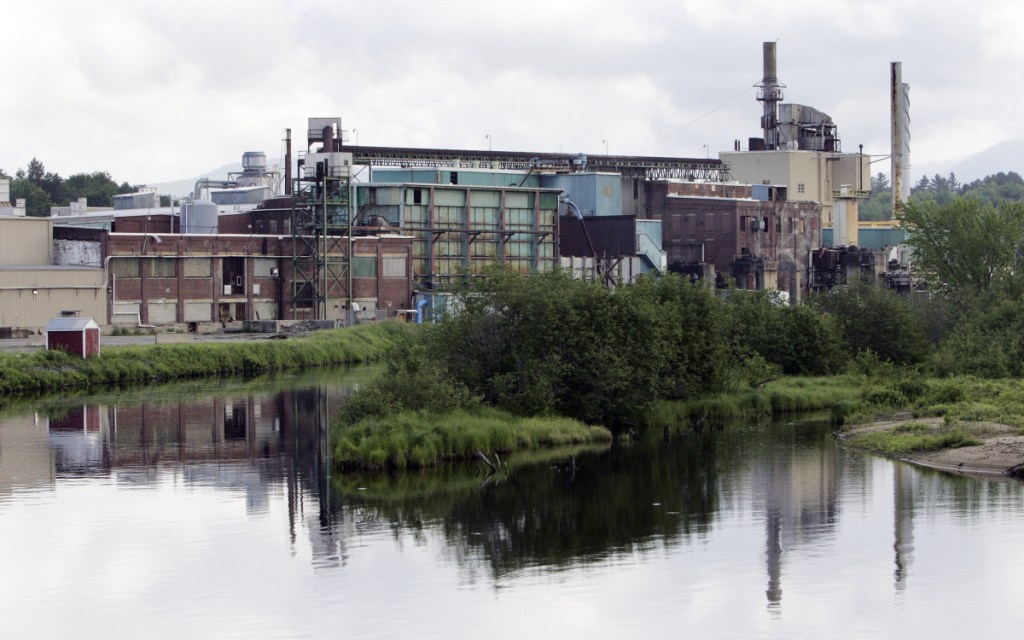New Year’s Eve marked the 10th anniversary of the closing of the 116-year-old Groveton, New Hampshire, paper mill. In August 2007, the mill’s owners, Wausau Papers, headquartered in Wisconsin, informed mill Superintendent Dave Atkinson that the mill would close at the end of the year. The absentee owners did not consult Atkinson before passing the mill’s death sentence.
The mill, which had been “the life of the town,” ceased to make paper, provide good-paying jobs and pay a major percentage of the town’s property taxes. While older millworkers adjusted to premature, involuntary retirement or a job that paid less than half of their union wage, many younger workers left their hometown. One former mill employee lamented that since the mill’s demise, the fabric of the community was unraveling. “They ruined this town,” another remarked bitterly.
When the mill was struggling during its final two decades, its talented, loyal workers did everything asked of them to keep the mill running. The union swallowed deep cuts in the purchasing power of wages. As Wausau starved the mill of investment necessary to remain competitive during its final years, Atkinson urged employees to concentrate on “controlling controllables.” Machine tenders, millwrights and engineers devised ingenious ways to reduce production costs, energy usage and workplace accidents. Miraculously, they reduced the amount of water required to make a ton of paper by two-thirds, achieving major savings in energy use in the process.
But in the end global forces beyond the control of a small paper mill doomed Groveton: declining demand for paper, depressed commodity paper prices and soaring natural gas prices in the aftermath of Hurricane Katrina. By the summer of 2007 Wausau was in deep financial trouble; management decided to shut down one of its mills.
Groveton-made colored papers, such as the red interleaf paper of the seventh Harry Potter book, were so bright that machine tender Joe Berube said they “would pull your eyeballs right out of the sockets.” Although Wausau’s other mills could not match the quality of Groveton’s paper, absentee management opted to close far-off Groveton, where it had never felt a part of the community.
Several Groveton employees attempted to engineer an employee buyout, only to learn that Wausau had attached a covenant to the deed prohibiting paper manufacturing in the mill complex ever again. While the community viewed Wausau’s unilateral decision to close the mill as an unforeseen calamity, stunned Grovetonians saw the covenant as a betrayal.
For 10 years, politicians and economic gurus have courted new absentee investors and speculators with scant success, and the economy that the mill once sustained remains depressed.
The millworkers could not control the uncontrollable global forces that have also doomed paper, textile and steel mills and automobile factories across the country in recent decades. Based on a hundred hours of conversation with former millworkers, I have devised a “Controlling the Uncontrollables” checklist for economic revitalization. As struggling communities search for ways to recover, they should consider a guiding philosophy for evaluating economic proposals that asks:
• Do we wish to promote local ownership committed to the community or to lure absentee speculators with tax breaks and subsidies?
• Do we desire economic diversity, or do we wish to rely on one large, absentee-owned economic engine that could close shop tomorrow and provoke another local economic collapse?
• Do we encourage high-value-added manufacturing of niche local and sustainable products, or do we continue to compete in low-value global commodity markets that often leave behind clearcut forests, strip mines or toxic waste sites?
• Do we want energy-efficient, low-carbon-footprint businesses and services or inefficient energy guzzlers that exacerbate climate change?
• Will we support vibrant downtown businesses operated by our friends and neighbors who re-invest their profits in our community, or do we want more global franchises that suck profits out of the region?
• Do we elect politicians committed to protecting the health and integrity of our local and natural communities, or politicians who rely on absentee profit-takers for campaign cash?
The right answers to these questions can guide economic development that doesn’t leave people like those in Groveton wondering: “What happened to our good jobs, good wages and our vibrant, thriving community?”
Jamie Sayen is author of “You Had a Job for Life,” an oral history of the now-defunct Groveton Papers Mill in northern New Hampshire.
Send questions/comments to the editors.



Comments are no longer available on this story